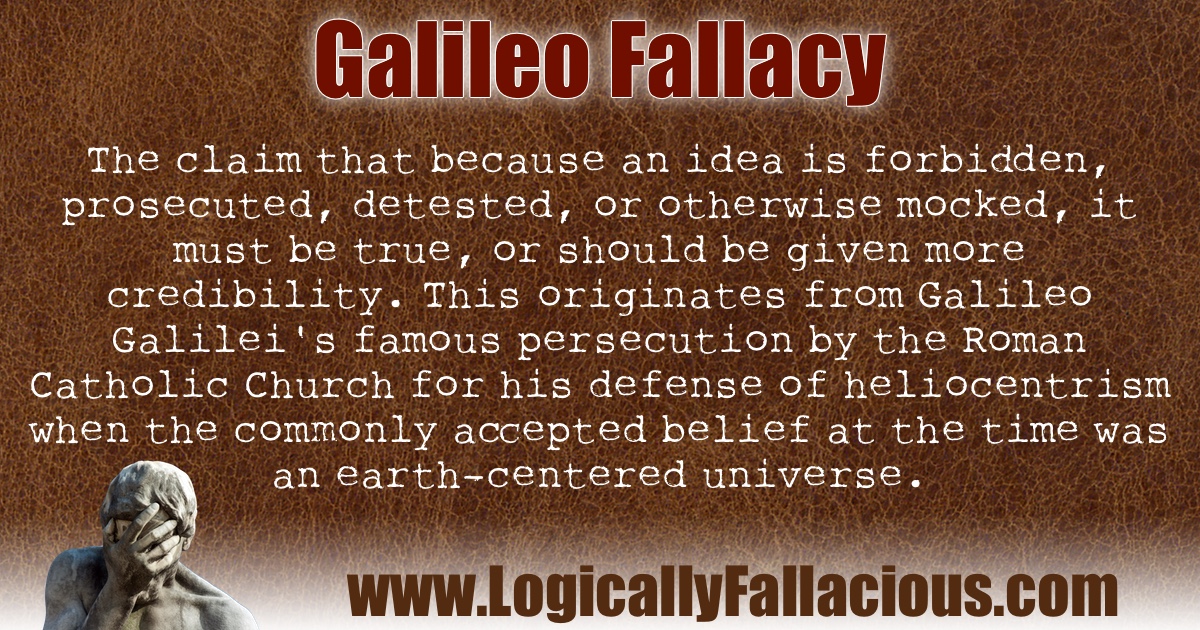(also known as: Galileo argument, Galileo defense, Galileo gambit, Galileo wannabe)
Description: The claim that because an idea is forbidden, prosecuted, detested, or otherwise mocked, it must be true, or should be given more credibility. This originates from Galileo Galilei's famous persecution by the Roman Catholic Church for his defense of heliocentrism when the commonly accepted belief at the time was an earth-centered universe.
Logical Form:
Claim X is made.
Claim X is ridiculous.
Person A argues that claim Y was seen as ridiculous at the time, and it turned out to be right.
Therefore, claim X is true (or should be given more credibility).
Example #1:
Lindi and Jonah claim that Elvis is still alive and living on the planet Hounddogian, in the constellation Bluesuede. When questioned about their odd beliefs, Lindi and Jonah confidently reply, "You know, people thought Galileo was nuts, too."
Explanation: Lindi and Jonah are making an extraordinary claim and offering no evidence to support their claim. They are using Galileo in an attempt to get the audience to doubt their skepticism about the claim.
Example #2:
Sidney: I am mere weeks away from getting my time machine to work, at which time, I will go back to 1626 and buy Manhattan from the Native Americans before the Dutch West India Company gets their greedy hands on it. I'll be much more generous and give the Native Americans 70 guilders, not a measly 60.
Pete: Is this the time travel kit you bought online for $99.99?
Sidney: Go ahead and mock me. People mocked the Wright brothers too for wanting to fly like birds!
Explanation: Although Sidney did not use the exact example of Galileo, the fallacy is the same. Any reference to a similar story counts.
Exception: Using Galileo or similar success stories to serve as effective inspirational anecdotes to encourage people to reach outside their comfort zone is not fallacious. It does not mean, however, that because they succeeded, that everyone else will or even can.
Tip: Remember that for every Galileo, there are millions of cranks, quacks, and wackos, and statistically speaking, those who use the Galileo defense are one of the latter.

References:
This a logical fallacy frequently used on the Internet. No academic sources could be found.
Questions about this fallacy? Ask our community!